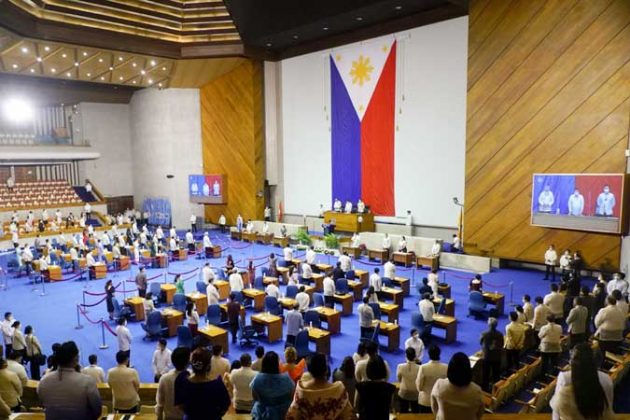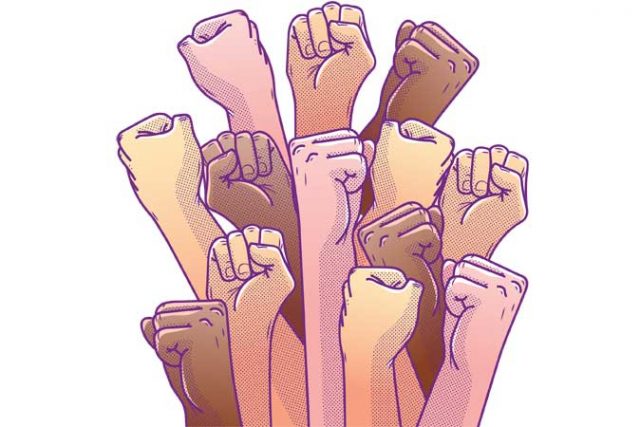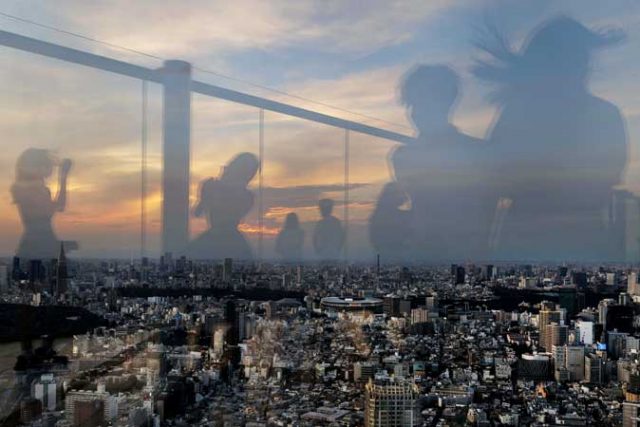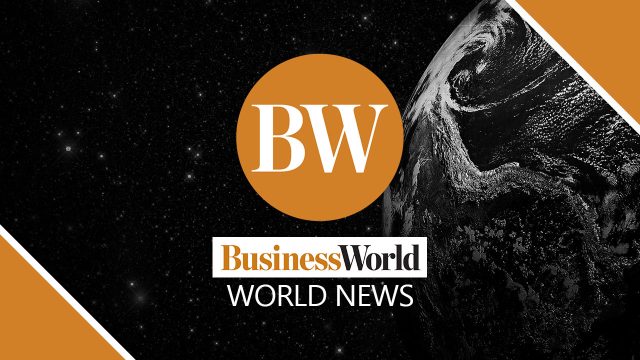It took only one kilo for Hidilyn Diaz to edge out Chinese champion Liao Quiyun to establish a new world weightlifting record of 224 kg in the 55-kg class and win the gold medal. That single feat was enough for the Philippine flag to be hoisted higher than China’s, and the Philippine National Anthem to be played on the podium during the awarding ceremonies — the first time in 97 years since the Philippines participated in the 1924 Paris Olympics.
That one kilo of a difference was executed in a masterful snatch, then clean and jerk.
But that one kilo of a difference was the product of a long and arduous journey before Hidilyn could engage her competitor in one-upmanship. She prepared for years, punctuated by lesser medals in similar competitions, buffeted by a lack of support, and, in the last year and a half, by the pandemic and the matrix claiming she was part of a conspiracy to oust the President.
President Rodrigo Duterte should not be surprised that his six-year term “will be judged solely on his administration’s COVID-19 response and not on the campaign promises he has fulfilled.” His singular failure to arrest the virus demolished almost everything that he attempted to build in order to leave a good legacy and secure his preferred mode of succession.
The President’s campaign promises that he said he fulfilled were basic and no doubt realistic. In his three-hour State of the Nation Address (SONA), the President reiterated that he just made fundamental promises to, one, offer free education; two, provide universal healthcare; three, fight against illegal drugs, criminality and corruption; and four, develop infrastructure.
Yet it seems his promises have not ripened after five years of his six-year term.
For instance, the first two have been legislated but budgetary constraints due to prioritization issues have not allowed these programs to progress to meaningful coverage of the population. The laws on free education and universal health are mere enabling laws. Unless fully supported by the national budget, they cannot cover as many Filipinos as necessary. One challenge is to do a snatch, the other is to clean and jerk a heavier weight.
While the battle lines have been drawn against drugs, criminality and corruption, the war is yet to be won. On drugs, while nearly 22,000 barangays were reported to have been cleared of drugs, we have yet to see the program bringing drug lords to the courts, prosecuted and imprisoned. One suspected drug lord even managed to escape from the Philippines while more than 8,000 people have been killed in the drug war. On criminality, we have yet to clear the air of suspicions that some uniformed personnel were involved in extrajudicial killings. In fact, as the broadsheets reported, a few hours before the SONA, two activists were killed in Albay while spray-painting protest graffiti. On corruption, we have a long way to go in even the big celebrated plunder cases where principals should serve terms rather than just their mere subordinates. The Senate is about to begin investigating charges of corruption against some key government departments and offices.
The SONA extolled the Duterte accomplishments in infrastructure. Duterte increased infra spending to an average of 5% of GDP, higher than the four administrations before it. With this, significant progress has been chalked up. These are quite obvious in public transport, air and seaports, highways and bypasses, and, yes, road widening.
But while Hidilyn cemented her own legacy in the Olympics by actually setting a new world record, the Duterte administration appeared to have failed to clear the hurdle.
For at the time of the SONA, the Delta variant was threatening to ravage the country, especially Metro Manila and surrounding cities and provinces. The OCTA Research Group subsequently recommended that the Government consider implementing a hard lockdown “to stop the surge of new COVID-19 cases driven by the more infectious Delta variant.” This is a circuit-breaking initiative in order to prevent a recurrence of the on-off enhanced community quarantine last year that actually destroyed the economy.
At least today, the business community is more supportive of the call for a short lockdown rather than risk longer, persistent quarantines.
One thing cannot be denied. The economic scars are just too plenty and they must still hurt. What the Duterte administration painfully built in the last four years were, for the most part, eroded by the coronavirus in 2020.
For example, real GDP in 2020 declined by 9.6% to P17.5 trillion from P19.4 trillion in 2019. In the first quarter 2021, output growth further dropped by 4.2%. Real GDP in 2020 translated into $333 billion, nearly back to the 2017 level of $326 billion.
Factoring income from abroad, our real gross national income (GNI) actually showed a bigger drop of 11.4%, from P21.3 trillion to only P18.9 trillion, or from $405 billion to $358 billion.
This means our per capita GNI decreased from $3,864 to $3,579. With the new World Bank country classification by income level starting 2020-2021, we are farther away from the Government’s goal of joining the upper-middle income group. We were a breath away from the old classification of $3,996-$12,375 two years ago. Today, at $3,579, we are miles away from the new classification of $4,046-$12,535.
In contrast, Indonesia moved from lower-middle income to upper-middle income with a per capita GNI of $4,050. Even Nepal came out from low-income category to our lower-middle income group with its per capita GNI of $1,090.
The economic scars have social dimensions, too. Unemployment in 2020 was double the level in 2019. While joblessness appears to be stabilizing at lower levels, millions continue to remain without jobs, more are underemployed.
With supply constraints due to the lockdown, even domestic prices surged and actual inflation in 2021 had breached the government target of 2-4 %.
There are also heavy fiscal and credit costs.
With revenues down in an economic recession, the Government increased its borrowings to finance the cost of pandemic mitigation and safeguard growth and jobs. As a result, total outstanding debt rose from P7.7 trillion at end-2019 to P11.1 trillion at end-May 2021, bringing the debt to GDP ratio from 39.6% to 60.4%. What adds fuel to the fire is the reported billions of pesos under previous Bayanihan allocations which remain unspent, obligated but not yet released by the implementing agencies.
The President should realize that these macroeconomic and fiscal consequences of COVID-19 are monitored by international financial institutions and credit rating agencies. For the Fund, its growth forecasts for the advanced and emerging markets differed according to the degree of their struggle with the coronavirus. Rich countries’ access to vaccines and fiscal support earned for them some upgrades while the handicaps of small emerging markets underlie their downgrades. The same narrative applies to the credit rating process. Fitch has already downgraded our outlook from stable to negative.
Of course, we can always choose to be indifferent to what these institutions have to say, but we rely on external borrowings for additional funds. If their assessment is negative, interest rates could climb a few basis points higher which could have a serious impact on balance sheets.
Hidilyn spent years preparing for the Tokyo Olympics. She “appeared weak” even if she was strong, a Sun Tzu strategy. At the end, she was triumphant with the gold and everything else she was entitled to.
The SONA did not even glitter as gold because it fell short of providing us with markers on how to proceed in our journey over the last 11 months of the Duterte administration. The direction provided us is a chimera, something good at the beginning of a journey because we have all the time to work hard for it.
Diwa C. Guinigundo is the former Deputy Governor for the Monetary and Economics Sector, the Bangko Sentral ng Pilipinas (BSP). He served the BSP for 41 years. In 2001-2003, he was Alternate Executive Director at the International Monetary Fund in Washington, DC. He is the senior pastor of the Fullness of Christ International Ministries in Mandaluyong.











